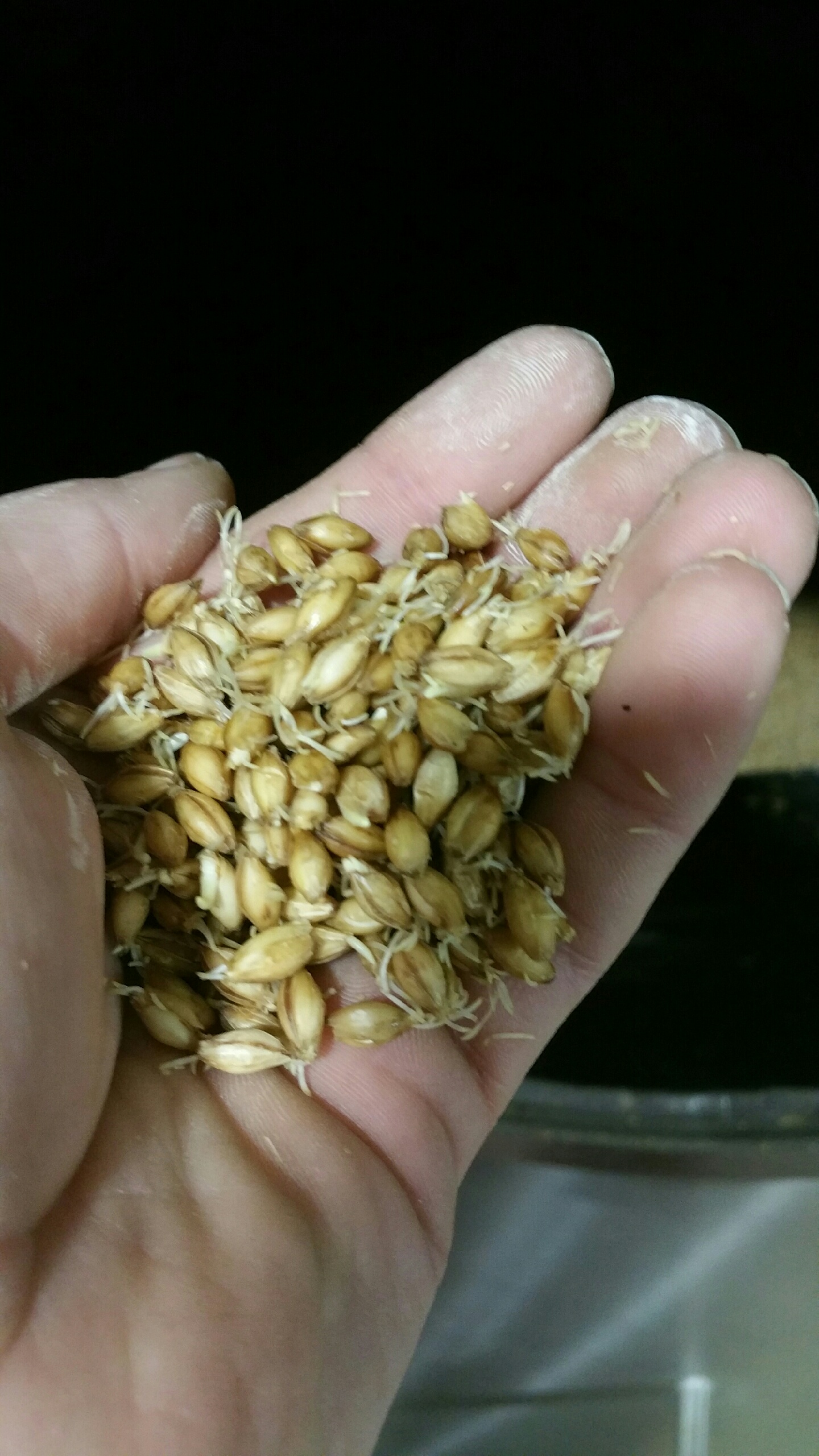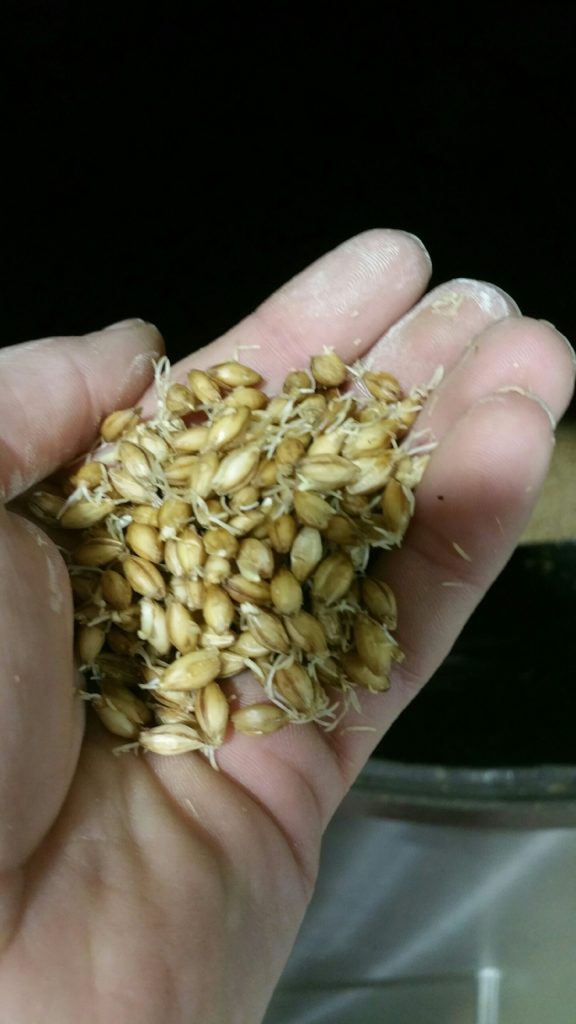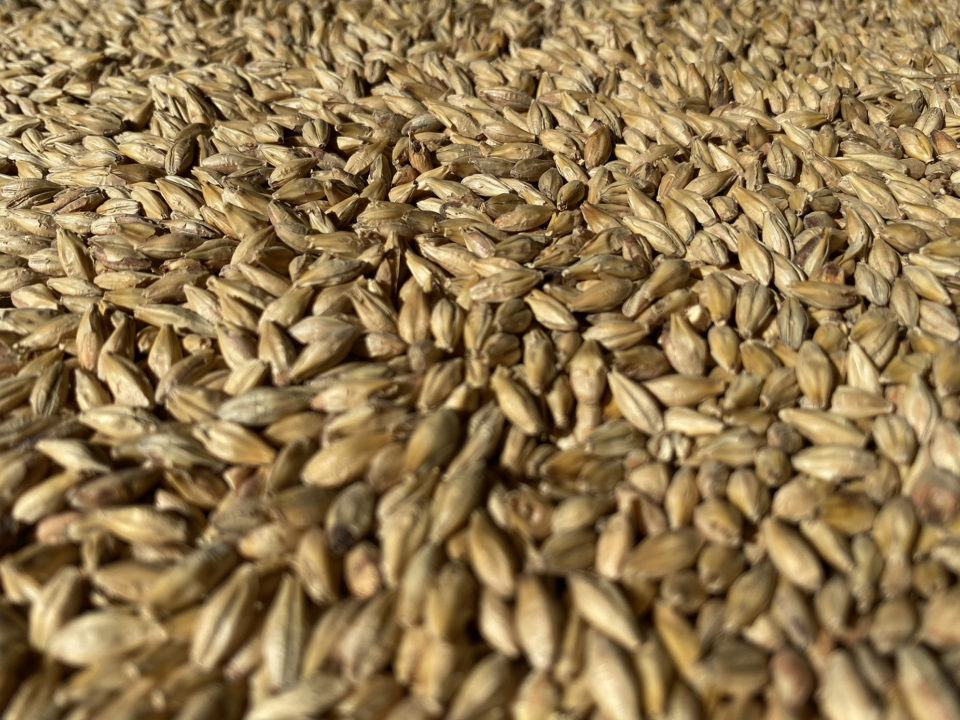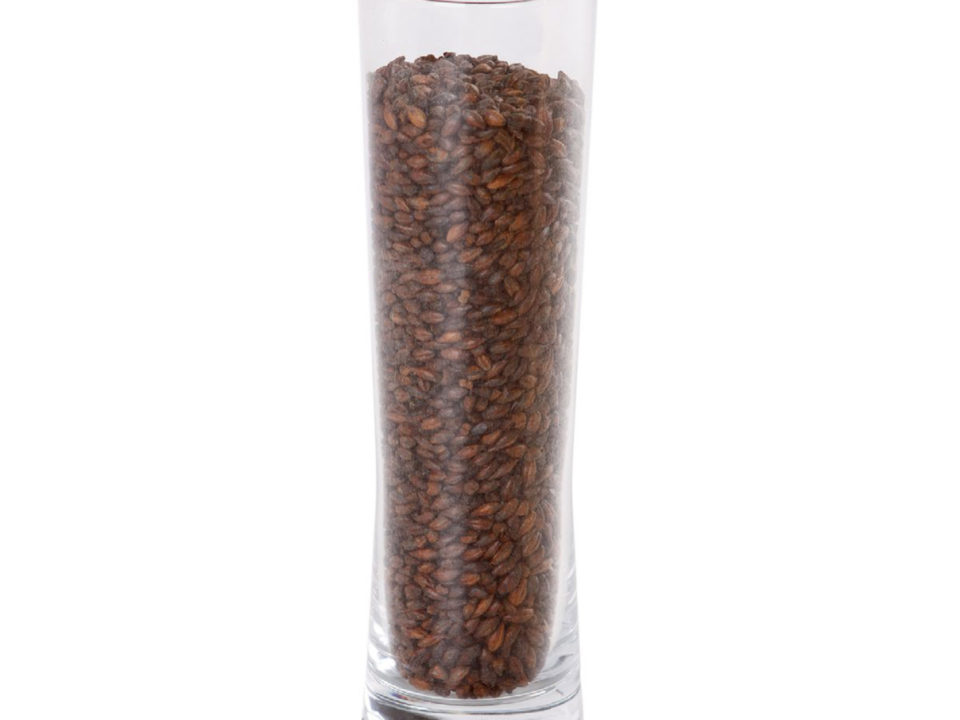
Maltster Bryan inspecting the barley throughout the malting process
The German traditions and methods of brewing beer date back many centuries to a more simple and less technological time. Malted barley is an essential ingredient in the brewing process and one that is protected by “Reinheitsgebot” or the “German Purity Law” established in 1516 AD. Today, that tradition is extended to modern times in part by the German practices of collaboration between growers, maltsters and brewers.
Through a non-profit consortium Braugersten-Gemeinschaft e.V. or the “Malting Barley Association” and VLB University extensive data and research results have been provided for more than 60 years to the malting and brewing industries. According to their literature “a focus of their research is the examination of newly approved malting varieties and their processing suitability in the “Berlin Program”. This program enables new malting barley varieties to be accepted to the processing level faster. As a result, the progress in barley breeding for the entire value chain is satisfied more promptly and barley can be grown competitively in Germany now and in the future.”
IREKS GmbH, located in Kulmbach, Germany which is situated in the Bavarian province of the Upper Franconia region has been crafting barley into malt since 1856 AD. IREKS and its local partner Stone Path Malt, located in Wareham, MA of New England USA support the “Malting Barley Association” and “Berlin Program”. Each year IREKS along with its brewing customers, including Augustiner and Kulmbacher, join brewing institutes such as Weihenstephan University, to test and evaluate different barley varieties and their crop year growth characteristics as it relates to the malting and brewing process. This information is shared with the participating malting and brewing community members. Barley varieties are then selected for their ability to meet the malting and brewing requirements. The varieties must finally be reviewed in order to be grown satisfactorily and provide a sufficient crop yield for affordability in the future.
Today, barley varieties including Avalon and Quench are approved and selected for their growing, malting and brewing characteristics. Both IREKS and Stone Path Malt have sourced the Quench variety as a premium select barley for their respective Pilsner and “Nor’East Gold” premium base malts. Stone Path Malt has also used the quench variety to locally craft a “Munich” and a “Kara 10L” caramel malt.
Locally, Stone Path Malt is working with regional barley growers in New England to trial and develop varieties of malting barley that will thrive in the soil type and climate of our region. After harvest, barley testing will be done by our growers, our maltster, a regional test lab and with our partners IREKS in Germany. With some luck and success, we’ll be malting these local varieties and submitting to brewers for evaluation and serving to craft beer lovers of New England in the fall.

Maltster Bryan inspecting the barley throughout the malting process


